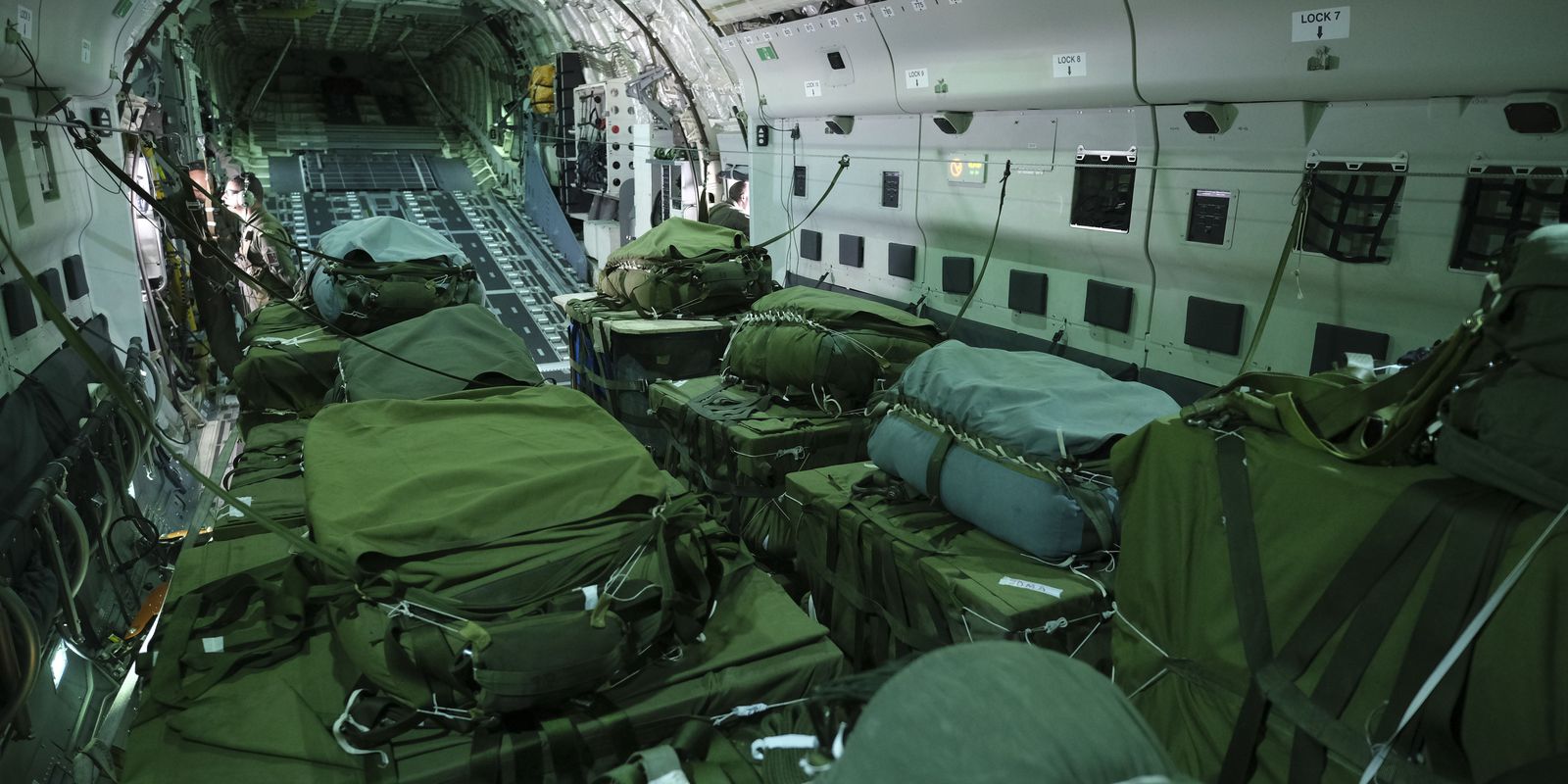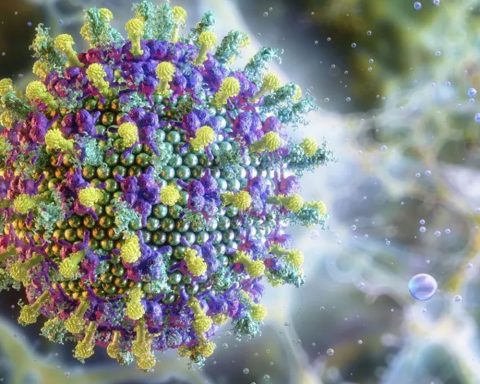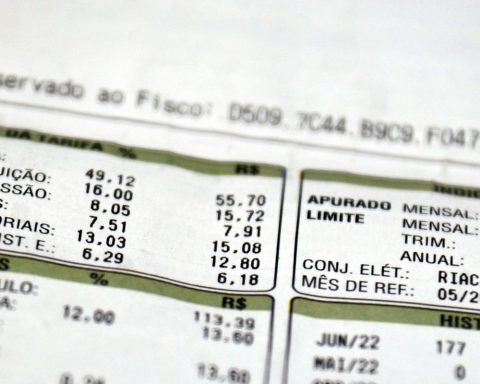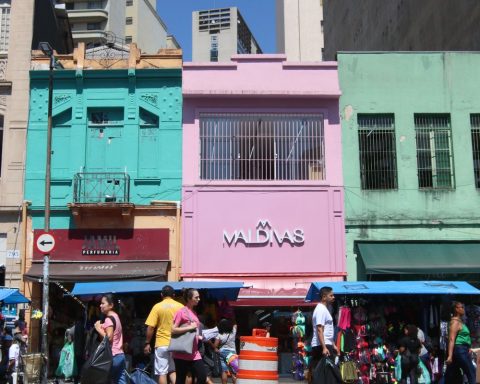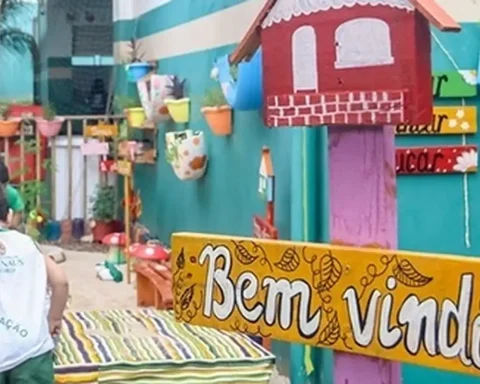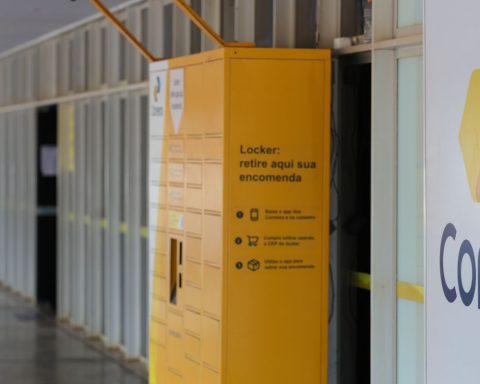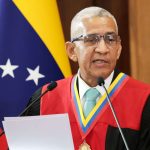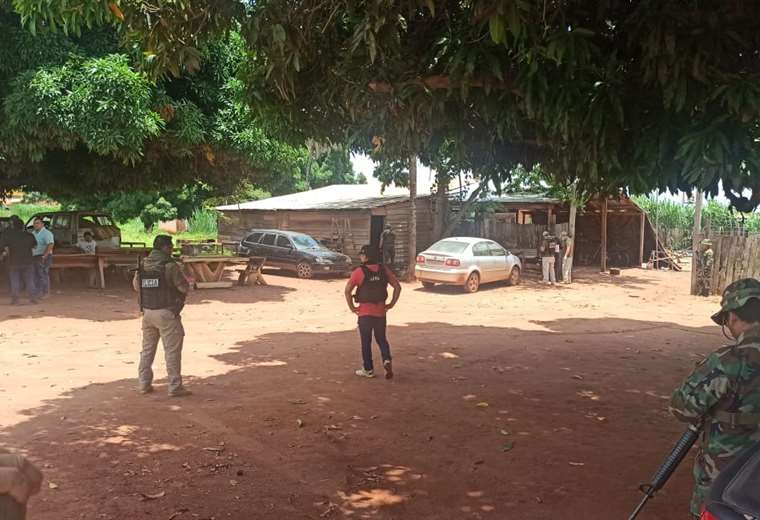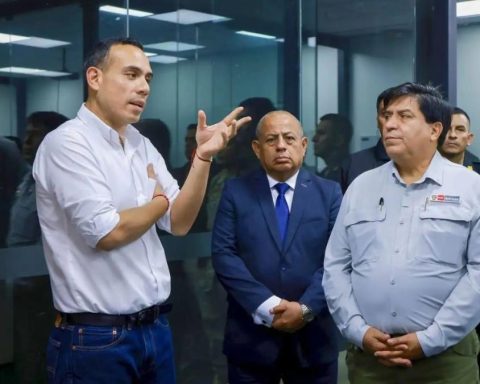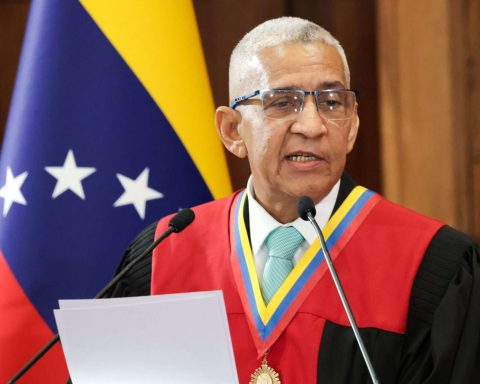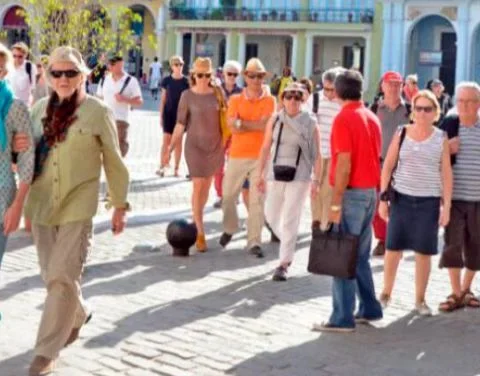Aircraft of the Brazilian Air Force (FAB) have been making daily launches of cargo, the so-called aerial resupply, to send supplies to the Yanomami indigenous villages, in the west of Roraima. So far, on board the KC-390 and C-105 Amazonas planes, approximately 120,000 loads of cargo have been delivered, including basic food baskets and medicines, which have served indigenous communities, including the Casa de Assistência ao Indígena de Surucucu, where a frontier platoon of the Brazilian Army is located. The region is one of the hardest hit by the effects of illegal mining, which has aggravated the illness of indigenous people, in addition to increasing violence. 
The report of Brazil Agency accompanied the launch carried out this Thursday (2), aboard the KC-390 freighter, which flew over the Surucucu base pole, in the Yanomami Indigenous Land, the largest indigenous area in the country.
According to the FAB, the supplies are dropped from approximately 200 meters high and reach the 4th Border Platoon (4th PEF – Surucucu), with the help of parachutes installed in the CDS, which stands for Container Delivery System, containing lots of baskets basics and medicines. In all, the flight lasts about two hours, between takeoff and landing at Boa Vista Air Base.
The assembly and preparation of supplies are carried out jointly by the FAB and the Brazilian Army, through the Folding, Parachute Maintenance and Air Supply Battalion (DOMPSA). They are the ones who perform all the parachute installation work, which supports up to 227 kilos, as well as the collection of material on the ground.
During the trip, it was possible to observe, from above, the existence of marks of illegal mining in the Indigenous Land. Deforested areas and lakes formed by mining activities dispute the landscape with the immensity of the preserved forest. The coloration of some rivers, with a strong brown tone, denounces the action of mining, when compared to other watercourses with a darker and more natural color.
Since yesterday, the FAB has activated the Air Defense Identification Zone (ZIDA) over the airspace of the Yanomami TI, in Roraima, based on the decree signed by President Luiz Inácio Lula da Silva. To meet this mission, three airspace control areas were created in the locality.
Unidentified or unauthorized aircraft flying in a certain portion of the airspace may be intercepted and will be subject to the application of Airspace Policing Measures (MPEA), which include requests for route changes and even warning shots and arrest shots, which cause damage to the aircraft and force it to make a forced landing. So far, the corporation has not reported any case of invasion of restricted air space.
